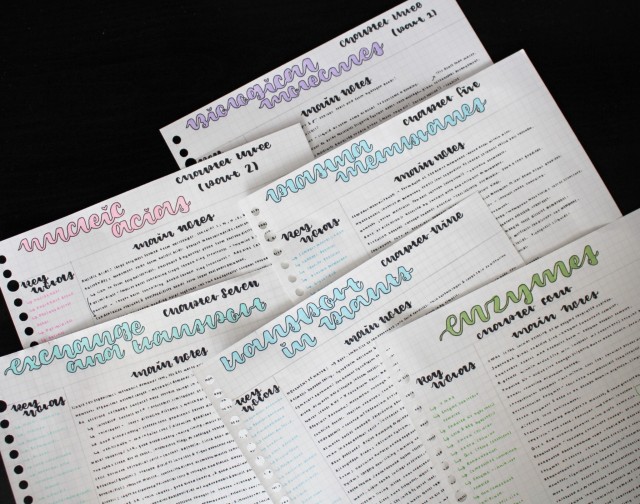#futurelearn


biology cornell notes
super happy with how these turned out, and they’re so helpful too!

Caring for people with Psychosis and Schizophrenia - Futurelearn Course
Cannabis & Psychosis
The greatest group of cannabis consumers are described as being between 16 - 24 years of age. The people who seem to carry the greatest risk of developing psychosis are the people who use a high potency type of cannabis daily. However, it would be wrong to assume that all cannabis users develop psychosis, and there is some evidence suggesting that there are some genetic variants linked to the dopamine system that increase an individual’s susceptibility to the psychogenic effect of cannabis. The THC present in the cannabis is the ingredient that has been identified as responsible for the psychotic symptoms, both acutely and long term, but CBD is able to reduce the THC effect on psychosis.


Understanding Autism - FutureLearn Course
Spikey Profiles:
Usually we think of people having a fairly even profile of skills, however this is different for autistic people. Most people on the spectrum have something known as a spikey profile, and this means we can’t look at an autistic person’s general skill level to predict what their other skills are like.
Although, spikey profiles aren’t usually recognized by people such as support workers. For example, autistic people with verbal communication are incorrectly assumed to be capable in areas which they struggle in, and those with less verbal skills are often incorrectly assumed to be lacking in skills and potential.
In some cases, the spike can be extreme, and some may have an exceptional ability, or a ‘savant’ skill.

ICOM Massive Open Online Course: Creating Meaningful and Inclusive Museum Practices
On 29 November the first ICOM Massive Open Online Course (MOOC) will be online and available to all on the Future Learn platform: “Creating Meaningful and Inclusive Museum Practices”. The course will encourage museum professionals to explore a series of methodologies and strategies for social inclusion and community building that can be implemented to support wider cultural participation.
The course was coordinated by the Department of Capacity Building / Museums and Society of ICOM Secretariat, and the content was developed by Armando Perla (El Salvador/Canada) and Deirdre Prins-Solani (South Africa), heritage and museum practitioners with strong experience on the subject.
Using representative case studies and discussions with practitioners, academics and community members, this course presents methodologies and strategies, such as co-curation, oral history, community collecting, inclusive design and conflict resolution. It illustrates a vibrant and evolving museum practice taking place in different corners around the globe.
The 4-week MOOC proposes practices for museums to ensure the inclusion of people who, for whatever reason, have been denied involvement in mainstream economic, political, cultural, and social activities, such as the elderly, persons with disabilities, migrants, minorities, Indigenous peoples, members from the LGBTQI+ and ethno-cultural communities.
At the same time, the instructors will lead the students to participate in self-assessment and peer-reviewed assignments to encourage self-reflection and social learning.
The course will also encourage a reflection on the challenges faced by institutions and practitioners, so that participants can broaden their perspective on the role of contemporary museums in community engagement and equip themselves with the skills to develop meaningful and inclusive museum projects.
